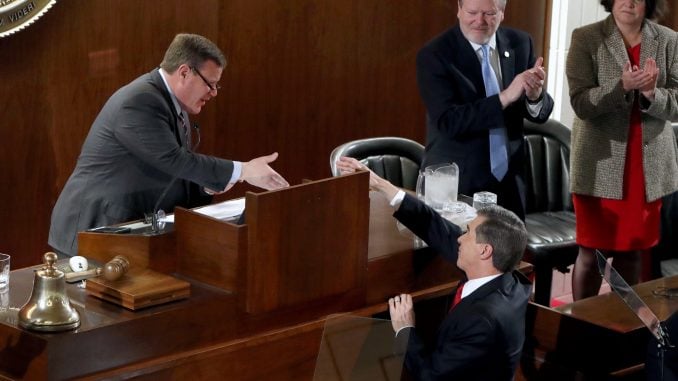
RALEIGH — North Carolina tax collections keep outpacing expectations. The top economist on the General Assembly’s nonpartisan staff, Barry Boardman, says state revenues for the first half of the fiscal year through December are $189 million ahead of projections lawmakers used when assembling the current budget. That’s 1.7 percent ahead. Boardman cautions the second half of the year is more volatile but says the solid economy means there’s minimal risk for the state in meeting revenue projections. North Carolina has registered revenue surpluses the past four years. Any surplus will aid budget-writers assembling the next two-year spending plan.
Speaker Tim Moore (R-Kings Mountain) reacted to the report in a press release, saying: “Our state’s excellent economic reports reflect a rising quality of life for families and businesses in North Carolina as a result of our commitments to their priorities.” Moore and Senate leader Phil Berger (R-Eden) will face the now real threat of Governor Cooper’s veto as the GOP holds slimmer majorities in the General Assembly. “The General Assembly must maintain our proven economic approach to creating opportunity and prosperity for millions of North Carolinians,” said Moore.
Governor Cooper did not issue a statement to the release. But, he has previously vetoed GOP spending bills and in 2018 called the state budget “irresponsible.” Prior to vetoing the 2018 state budget, Cooper said, “This budget has the wrong priorities and is irresponsible. It values tax breaks for corporations and the wealthy at the expense of public education not only this year, but for years to come.” Cooper’s veto was overridden by the General Assembly. The General Assembly’s non-partisan fiscal staff projected that Cooper’s proposed budget would have created a $500 million budget deficit.
The Associated Press contributed to this report.



